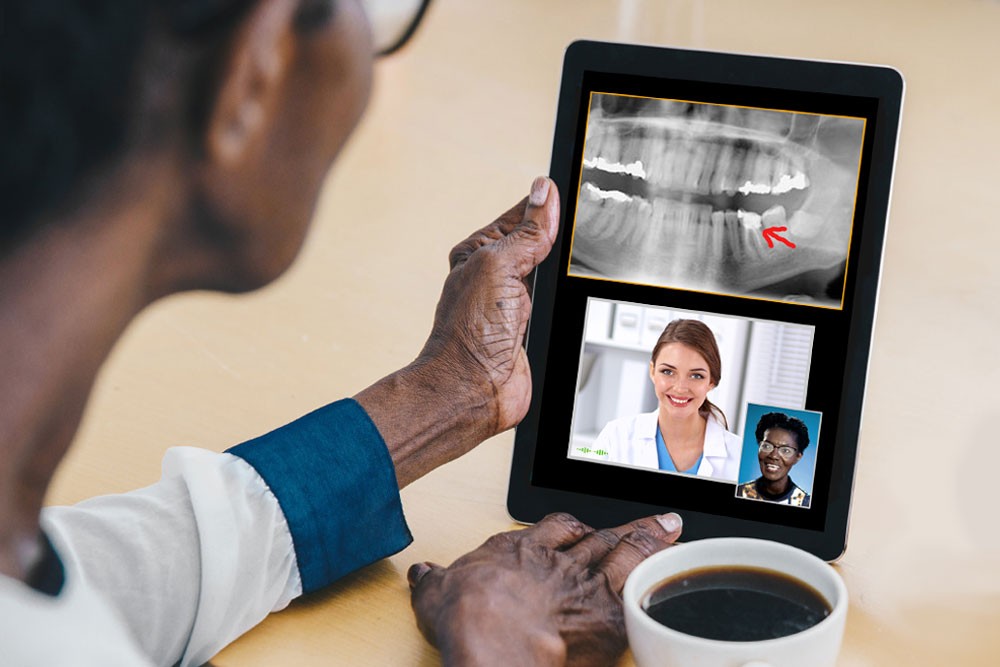Oral Healthcare during the Covid-19 Pandemic

The Covid-19 pandemic has put the spotlight on the high risk of infection for dental patients and care providers. It has significantly impacted how dentistry is practiced and professional dental education is imparted around the world.
In a two-part series addressing the challenges faced by dental professionals and showcasing some innovative approaches in providing services and educating students undertaken by dental facilities across India, Kenya and the United States, Columbia Global Centers | Mumbai organized webinars in collaboration with Columbia Global Centers | Nairobi and the College of Dental Medicine (CDM) at Columbia University on July 13 and July 20, 2020. The webinars saw active participation from a global audience as well as members of the dental profession.
The first panel focused on different approaches undertaken by dental professionals to screen, restart clinical services, and provide care to patients during the Covid-19 outbreak. Sharon Perelman, Assistant Professor and Chief Medical Informatics Officer at CDM, presented a systematic approach to emergency triage and pre-procedure assessment by discussing an algorithm that was developed with the idea to avoid misdiagnosis, delayed care or referral, disease progression, and systemic complications in screening patients. The algorithm offered a decision-making framework for managing dental emergencies using a prescribed pre-operative checklist with attention to the patient’s medical history and current medical status, based on which a treatment plan was devised for the patients. Regina Mutave, Professor and Dean of the School of Dental Sciences at the University of Nairobi, shed light on the challenges of low dentist-to-patient ratios, shortage of personal protective equipment (PPE), and breaks in academic training that impacted the dental profession in Kenya. Presenting the different ways by which dental facilities across Kenya were trying to find solutions in accordance with the guidelines proposed by the government, she suggested prioritizing urgent and emergency dental services, delaying elective visits and procedures, using PPE, training faculty and students online, and tele-triaging and tele-consulting patients to ensure affordable, sustainable, and equitable access to oral healthcare during this lockdown period. Biana Roykh, Associate Professor and Senior Associate Dean for Clinical Affairs, CDM, suggested phases that included reorganization of supplies, rehauling clinical facilities and reconfiguring functional workflows—as a method of restarting clinical practice; while G. Rajesh, Professor and Head, Public Health Dentistry, Manipal College of Dental Sciences, stressed the importance of tele-dentistry in facilitating dental treatment, patient care, guidance, education, and research in the Indian healthcare scenario.
Ensuring continuity of dental education without the key curriculum component of direct patient care was the subject of Part Two of the webinar series. James B. Fine, Professor and Associate Dean of Postdoctoral Programs at CDM addressed the issue of training and education of the three groups — dental residents, faculty and post graduate students — through distance learning programs. He underscored the importance of self-reflection time for faculty and residents who are involved in direct patient care, and self-directed education for post graduate students in these challenging times. Optimally utilizing the dental workforce in offsite administrative functions, inpatient support, and provision of specialized Covid-19 care services like staffing a general surgery unit, step-down ICUs, drive-through testing, and managing all maxillofacial trauma cases, were some of the ideas proposed by Victor Badner, Associate Professor and Chair, Department of Dentistry and Oral Maxillofacial Surgery, Jacobi Medical Center in New York. Other webinar panelists included Dean Mutave and Vikrant Mohanty, Associate Professor and Head, Public Health Dentistry, Maulana Azad Institute of Dental Sciences. Both of them proposed developing prevention strategies for the community, adopting a multi-disciplinary approach to tackle oral and general health issues, and creating awareness about oral health in the community. Dr. Mohanty showcased the novel outreach strategies that their dental facility had developed to create oral health awareness, including comics, movies, posters, and school teacher education.
As dental schools continue to create contingency plans to deal with the pandemic, development of e-oral health infrastructure with innovative and blended pedagogical approaches, ensuring greater convergence of dentistry with medicine while allowing outreach and multi-professional support to students were some of the ideas that panelists proposed for adapting to the lasting effects of the Covid-19 pandemic.